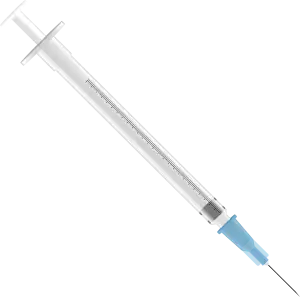Unlocking Relief: Dysport for TMJ - A Revolutionary Approach to Easing Temporomandibular Joint Disorder

- Symptoms and Causes of TMJ
- Traditional Treatment Options for TMJ
- The Use of Dysport for Treating TMJ
- Effectiveness of Dysport in Relieving TMJ Symptoms
- How Dysport Works to Alleviate TMJ Pain and Discomfort
- Benefits of Dysport for TMJ Treatment
- Non-invasive and Minimally Painful Procedure
- Long-lasting Results
- Improved Jaw Function and Reduced Discomfort
- Potential Side Effects and Risks of Dysport for TMJ
- Consultation and Treatment Process
Temporomandibular Joint Disorder (TMJ) is a common condition that affects the jaw joint and surrounding muscles. It can cause pain, discomfort, and difficulty in jaw movement. TMJ can be caused by various factors such as teeth grinding, jaw clenching, arthritis, or injury to the jaw joint. The symptoms of TMJ include jaw pain, clicking or popping sounds when opening or closing the mouth, headaches, earaches, and difficulty in chewing or speaking. TMJ can significantly impact a person's quality of life and daily activities.
Symptoms and Causes of TMJ
Symptoms of Temporomandibular Joint Disorder (TMJ) can vary from person to person, but commonly include jaw pain, difficulty chewing or opening the mouth, clicking or popping sounds when moving the jaw, and headaches. Other symptoms may include earaches, facial pain, and neck or shoulder pain.
The causes of TMJ are not always clear, but several factors can contribute to its development. These include jaw injuries, teeth grinding or clenching (bruxism), arthritis in the jaw joint, misalignment of the teeth or jaw, stress, and even genetics. It is important to note that TMJ can affect anyone at any age, although it is more common in women and individuals between the ages of 20 and 40.
Traditional Treatment Options for TMJ
Traditional treatment options for TMJ focus on managing the symptoms and improving jaw function. These include lifestyle changes, self-care techniques, and various therapies. Lifestyle changes may involve avoiding hard or chewy foods, practicing stress management techniques, and using heat or cold packs to alleviate pain. Self-care techniques such as gentle jaw exercises and relaxation exercises can also provide relief. Therapies like physical therapy, dental splints or mouthguards, and orthodontic treatments may be recommended to improve jaw alignment and reduce muscle tension. In some cases, medications like pain relievers, muscle relaxants, or anti-inflammatory drugs may be prescribed to alleviate pain and inflammation associated with TMJ. It is important to consult a healthcare professional for an accurate diagnosis and appropriate treatment plan based on individual needs.
Dysport is a revolutionary treatment option for Temporomandibular Joint Disorder (TMJ). It is a form of botulinum toxin type A, similar to Botox, that has been approved by the FDA for cosmetic and therapeutic purposes. Dysport works by temporarily paralyzing the muscles responsible for causing TMJ symptoms. This helps to reduce muscle tension and alleviate pain and discomfort associated with TMJ. The mechanism of action involves blocking the release of acetylcholine, a neurotransmitter that signals muscle contractions. By inhibiting muscle activity, Dysport provides relief from TMJ symptoms and improves jaw function.
The Use of Dysport for Treating TMJ
Dysport has emerged as a promising treatment option for Temporomandibular Joint Disorder (TMJ). Studies have shown its effectiveness in relieving TMJ symptoms, such as jaw pain and restricted movement. Dysport works by targeting the muscles responsible for TMJ, reducing their activity and providing relief. This neurotoxin injection has been found to be safe and well-tolerated by patients. With its ability to alleviate TMJ pain and discomfort, Dysport offers a potential breakthrough in the treatment of this debilitating condition.
Effectiveness of Dysport in Relieving TMJ Symptoms
Dysport has shown significant effectiveness in relieving symptoms of TMJ. Clinical studies have demonstrated that Dysport injections can effectively reduce pain, muscle tension, and jaw stiffness associated with TMJ disorder. Patients have reported a noticeable improvement in their ability to open and close their mouths without discomfort after receiving Dysport treatment. The neurotoxin properties of Dysport work by temporarily paralyzing the muscles responsible for causing TMJ symptoms, providing relief and allowing the jaw joint to function more smoothly.
How Dysport Works to Alleviate TMJ Pain and Discomfort
Dysport works to alleviate TMJ pain and discomfort by targeting the muscles responsible for jaw movement. It contains a purified form of botulinum toxin type A, which temporarily blocks nerve signals to the muscles, reducing their ability to contract forcefully. This relaxation of the muscles helps to relieve tension and spasms in the jaw, leading to a reduction in pain and discomfort associated with TMJ. By inhibiting muscle activity, Dysport also prevents excessive grinding or clenching of the teeth, which can further aggravate TMJ symptoms.
Benefits of Dysport for TMJ Treatment
a. Non-invasive and Minimally Painful Procedure: Unlike surgical options, Dysport offers a non-invasive alternative for TMJ treatment. The injections are relatively painless and do not require any incisions or anesthesia.
b. Long-lasting Results: Dysport provides long-lasting relief from TMJ symptoms. Patients can experience improvement in jaw function and reduced discomfort for several months after the treatment.
c. Improved Jaw Function and Reduced Discomfort: Dysport works by relaxing the muscles responsible for jaw movement, thereby reducing muscle tension and alleviating pain associated with TMJ. This leads to improved jaw function and a significant reduction in discomfort.
These benefits make Dysport an attractive option for individuals suffering from TMJ, offering them a non-invasive, long-lasting solution to their symptoms.
Non-invasive and Minimally Painful Procedure
Dysport for TMJ offers a non-invasive and minimally painful procedure for patients seeking relief from their symptoms. Unlike surgical options, Dysport is administered through injections, eliminating the need for incisions or anesthesia. The injections are quick and relatively painless, with most patients reporting only mild discomfort during the procedure. This makes it an attractive option for individuals who prefer to avoid invasive treatments or are concerned about potential complications. With its ease of administration and minimal discomfort, Dysport provides a convenient and accessible solution for those suffering from TMJ disorder.
Long-lasting Results
One of the key benefits of using Dysport for TMJ treatment is its ability to provide long-lasting results. Unlike some traditional treatment options that may only offer temporary relief, Dysport has been shown to have a lasting effect on reducing TMJ symptoms.
Studies have found that the effects of Dysport can last for several months, with some patients experiencing relief for up to six months or longer. This means that individuals who undergo Dysport treatment for TMJ can enjoy an extended period of improved jaw function and reduced discomfort.
The long-lasting results of Dysport make it a convenient option for individuals seeking a more permanent solution to their TMJ symptoms. Instead of having to regularly undergo treatments or rely on medications, patients can benefit from the sustained effects of Dysport.
Furthermore, the longevity of Dysport's effects can also contribute to improved quality of life for individuals with TMJ. By providing long-term relief from pain and discomfort, it allows patients to engage in daily activities without being hindered by their condition.
It is important to note that the duration of results may vary depending on individual factors such as the severity of TMJ symptoms and the specific treatment plan recommended by a healthcare professional. Consulting with a qualified medical practitioner will help determine the most suitable course of action and expected outcomes for each patient's unique situation.
Improved Jaw Function and Reduced Discomfort
One of the key benefits of using Dysport for TMJ treatment is the improvement in jaw function and reduction in discomfort. Temporomandibular joint disorder often leads to limited jaw movement, making it difficult to eat, speak, and even yawn comfortably. However, Dysport injections can help relax the muscles around the jaw joint, allowing for smoother and more natural movements.
By targeting the overactive muscles responsible for TMJ symptoms, Dysport helps to reduce muscle tension and spasms. This relaxation effect not only alleviates pain but also improves jaw mobility. Patients who undergo Dysport treatment often experience increased range of motion in their jaws, enabling them to open wider and move their jaws more freely.
Moreover, with improved jaw function comes a significant reduction in discomfort. Many individuals with TMJ suffer from chronic pain, which can be debilitating and affect their quality of life. Dysport injections provide relief by reducing muscle tension and inflammation in the jaw area. As a result, patients experience less pain and discomfort on a daily basis.
The improved jaw function and reduced discomfort achieved through Dysport treatment allow individuals with TMJ to engage in normal activities without limitations or constant pain. Whether it's enjoying a meal or engaging in conversations without difficulty, these positive outcomes greatly enhance their overall well-being.
It is important to note that while Dysport offers promising results for many patients with TMJ, individual experiences may vary. Consulting with a qualified healthcare professional is essential to determine if this treatment option is suitable for your specific condition.
Potential Side Effects and Risks of Dysport for TMJ
While Dysport has proven to be an effective treatment option for TMJ, it is important to consider the potential side effects and risks associated with this procedure. Some common side effects include temporary muscle weakness, bruising at the injection site, and headache. In rare cases, patients may experience allergic reactions or difficulty swallowing. It is crucial to consult with a qualified healthcare professional before undergoing Dysport treatment to discuss any potential risks and determine if it is the right option for you.
Consultation and Treatment Process
Before undergoing Dysport treatment for TMJ, it is essential to schedule a consultation with a qualified healthcare professional. During this consultation, the healthcare provider will evaluate your medical history, conduct a physical examination, and discuss your symptoms in detail.
Based on the evaluation, the healthcare provider will determine if Dysport is an appropriate treatment option for you. They will explain the procedure, potential risks, and expected outcomes. It is crucial to ask any questions or express concerns during this consultation to ensure a clear understanding of the treatment process.
If Dysport is deemed suitable for your condition, the actual treatment can be scheduled. The procedure typically takes around 15-30 minutes and involves injecting small amounts of Dysport into specific jaw muscles. Local anesthesia may be used to minimize discomfort during the injections.
Following the treatment, it is normal to experience some swelling or bruising at the injection site. However, these side effects are usually temporary and subside within a few days. Your healthcare provider may provide post-treatment instructions regarding pain management and any restrictions on jaw movement.
It's important to note that individual results may vary, and multiple sessions of Dysport injections may be required for optimal relief from TMJ symptoms. Regular follow-up appointments with your healthcare provider will be necessary to monitor progress and make any necessary adjustments to the treatment plan.
In conclusion, before proceeding with Dysport treatment for TMJ, it is crucial to consult with a qualified healthcare professional who specializes in this area. Through thorough evaluation and discussion of your symptoms, they can determine if Dysport is an appropriate option for you. The actual treatment process involves injections into specific jaw muscles and may require multiple sessions for optimal results. Following post-treatment instructions and attending regular follow-up appointments are essential for successful TMJ management using Dysport.
In conclusion, Dysport has emerged as a revolutionary approach to easing Temporomandibular Joint Disorder (TMJ). With its effectiveness in relieving TMJ symptoms and improving jaw function, Dysport offers a non-invasive and minimally painful treatment option. The long-lasting results of Dysport make it a viable choice for those seeking relief from TMJ discomfort. However, it is important to consider the potential side effects and risks associated with this treatment. Overall, Dysport presents itself as an effective option for individuals looking to alleviate the pain and discomfort caused by TMJ.
Published: 12. 02. 2024
Category: Health



